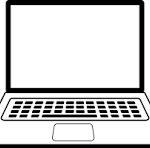In recent years, computer hardware has had a significant impact on the healthcare industry, revolutionizing the way medical professionals work and patients receive care. From electronic health records to wearable technology, computer hardware is transforming healthcare in ways that were once unimaginable. In this article, we will explore some of the ways that computer hardware is changing the healthcare industry.
One of the most significant advancements in healthcare technology has been the development of electronic health records (EHRs). EHRs allow medical professionals to access patient records from anywhere, at any time. This technology has improved patient outcomes by reducing errors and streamlining communication between healthcare providers. With EHRs, medical professionals can quickly access important patient information such as medical history, allergies, and medications, which helps them make informed decisions about patient care.
Another area where computer hardware is having a significant impact on healthcare is through the development of wearable technology. Wearable devices, such as fitness trackers and smartwatches, allow patients to monitor their health and receive real-time feedback on their progress. This technology is particularly useful for patients with chronic conditions, such as diabetes and heart disease, who need to monitor their health regularly. Wearable technology also enables doctors to monitor patients remotely, reducing the need for frequent in-person visits.
Computer hardware is also changing the way medical procedures are performed. Advances in computer-aided design and 3D printing technology have made it possible to create customized implants and prosthetics, improving patient outcomes and reducing recovery time. Robotic surgery, which utilizes computer-controlled devices to perform surgeries with increased precision and accuracy, is also becoming more common.
Telemedicine is another area where computer hardware is changing the healthcare industry. Telemedicine allows patients to receive medical care remotely, which is particularly useful for patients who live in rural areas or have mobility issues. Telemedicine can also reduce the burden on healthcare facilities, freeing up resources and improving efficiency.
Finally, computer hardware is also changing the way medical research is conducted. Advances in computing power and data analytics have made it possible to analyze vast amounts of data quickly and accurately. This technology is helping researchers identify new treatments and cures for diseases, and is enabling personalized medicine, which tailors treatments to individual patients based on their unique genetic makeup.
In conclusion, computer hardware is revolutionizing the healthcare industry in numerous ways, from improving patient outcomes through electronic health records to transforming medical procedures with 3D printing and robotic surgery. Wearable technology and telemedicine are making healthcare more accessible to patients, while advances in computing power and data analytics are driving medical research forward. As technology continues to evolve, we can expect to see even more exciting advancements in the field of healthcare.


 Wi-Fi Adapter
Wi-Fi Adapter Keyboard
Keyboard Earphone
Earphone External HDD
External HDD